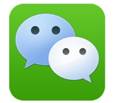题目内容
- Mrs Smith, please teach me how to draw on the computer today.
- Oh, no. ______. You have to get familiar with the keyboard today.
- Oh, no. ______. You have to get familiar with the keyboard today.
| A.Each dog has its day | B.Never too late to learn |
| C.Early birds catch worms | D.Learn to walk before you run |
D
试题分析:句意:史密斯先生,请今天教给我怎样在电脑上画画吧。不行, 。今天你不得不先熟悉键盘。A. Each dog has its day凡人都有如意日B. Never too late to learn活到老,学到老C. Early birds catch worms笨鸟先飞D. Learn to walk before you run先学走再学跑。根据句意及情景,故选D。

练习册系列答案
相关题目


